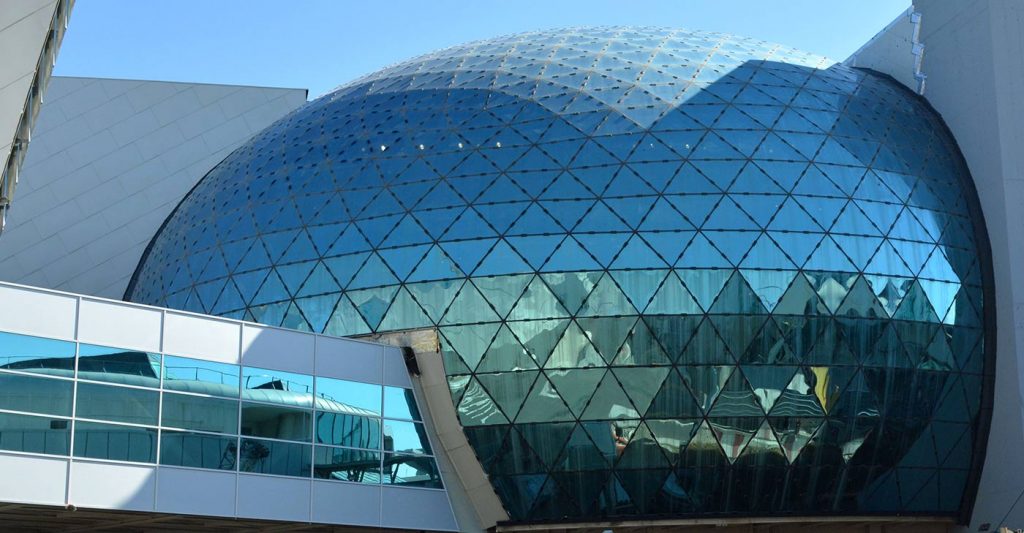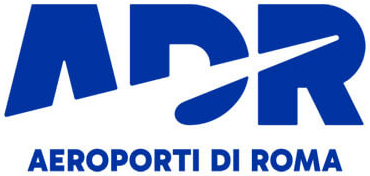Two ITA Airways routes to be powered by SAF at Rome Fiumicino Airport
| Company | Rome–Fiumicino International Airport "Leonardo da Vinci" |
|---|---|
| Date | 25.03.2022 |

Rome Fiumicino Airport is increasing the availability of SAF (Sustainable Aviation Fuel), an aviation biofuel made from renewable raw materials capable of supporting the reduction of CO2 emissions in the aviation sector.
The Leonardo da Vinci airport has become the first Italian airport to employ SAF, allowing ITA Airways to use it on the airline’s first 10 flights on 15 October 2021. From tomorrow, it will further increase distribution so that, throughout 2022, ITA Airways will be capable of powering two routes (Rome-Venice and Rome-Barcelona) as part of its decarbonization project.
 Around 3,000 tonnes of Jet fuel + Eni SAF (fuel blended with renewable raw material components) came from the Eni refinery in Taranto to the port of Civitavecchia, where it was unloaded at the coastal depot of SODECO (part of the Ludoil Group), which directly supplies Rome Fiumicino Airport. This is a further step towards the expansion of Aeroporti di Roma’s commitment to sustainability and decarbonization of the sector, given that Rome Fiumicino was the first airport in Europe to obtain the highest Airport Carbon Accreditation 4+ “Transition” from ACI Europe for CO2 reduction. The group has also confirmed that it will drive its greenhouse emissions down to zero by 2030, well ahead of the original sector targets.
Around 3,000 tonnes of Jet fuel + Eni SAF (fuel blended with renewable raw material components) came from the Eni refinery in Taranto to the port of Civitavecchia, where it was unloaded at the coastal depot of SODECO (part of the Ludoil Group), which directly supplies Rome Fiumicino Airport. This is a further step towards the expansion of Aeroporti di Roma’s commitment to sustainability and decarbonization of the sector, given that Rome Fiumicino was the first airport in Europe to obtain the highest Airport Carbon Accreditation 4+ “Transition” from ACI Europe for CO2 reduction. The group has also confirmed that it will drive its greenhouse emissions down to zero by 2030, well ahead of the original sector targets.
At present, the jet fuel + Eni SAF from the Taranto refinery is produced by feeding conventional plants with 0.5% UCO. The organic component of the approximately 3,000 tonnes available at Fiumicino airport saves more than 50 tonnes of CO2 compared to an equivalent load of fossil fuel products.
Eni is the second largest producer of HVO biofuels in Europe, thanks to its proprietary Ecofining™ technology, which also enables it to produce sustainable aviation fuels (SAF). A new type of fuel, Eni Biojet is produced by distilling bio-components from Eni’s biorefineries using only waste raw materials such as used cooking oil and animal fats and will be available by the end of the year. Eni Biojet will contain 100% biogenic components and can be used in an up-to-50% blend with conventional jet fuel. From 2024, additional production of 150,000 tonnes/year of Eni Biojet fuel will start in Gela, meeting the potential blending requirements for the Italian market by 2025.
Giuseppe Ricci, General Manager of Energy Evolution at Eni, said: “Sustainable aviation biofuels are now the only solution available to reduce the sector’s carbon footprint. We are increasing the collection of waste raw materials – such as cooking oils – and also collecting more agro-feedstocks, promoting the development of crops that do not compete with the food supply chain on marginal land, particularly in Africa”.
Contact
00054 Fiumicino
Rome
Italy
- +39 0665951

